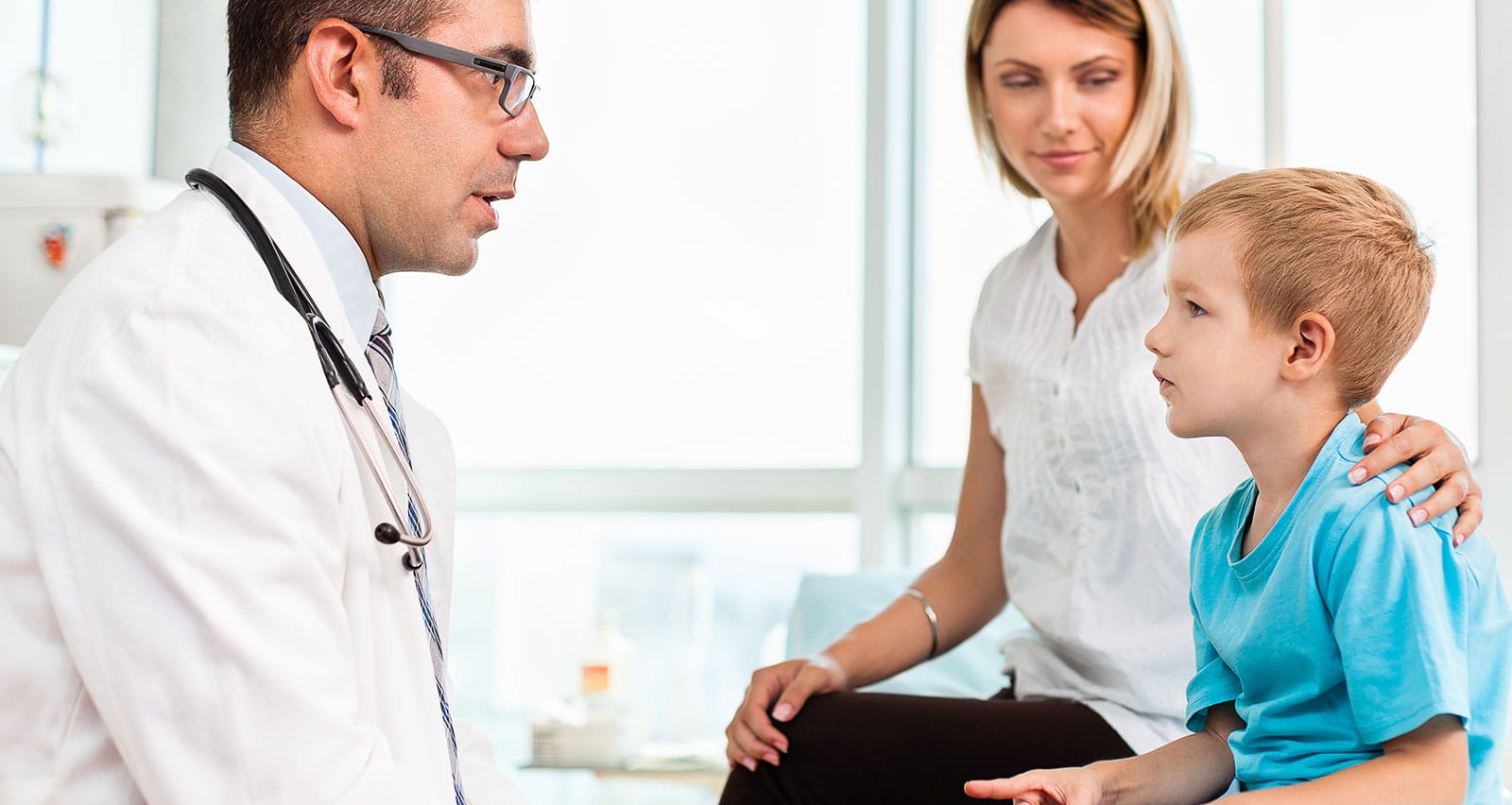
Congenital Adrenal Hyperplasia (CAH)
Congenital adrenal hyperplasia (CAH) is a group of genetic disorders that affect hormone production in the body. While there is no cure for CAH, the symptoms can be managed with medication and other therapies. UH Rainbow Babies & Children’s hospital has a team of experts in pediatric urology, endocrinology and other specialties to diagnose and treat CAH in children and help them lead full and normal lives.
Make an Appointment with a Pediatric Urologist
To learn more about our pediatric urology services or to make an appointment, please call 216-844-5661.
Schedule OnlineWhat Is Congenital Adrenal Hyperplasia?
Children born with CAH may have issues with salt levels, fluid levels and blood pressure. They may also experience variation in sexual development, and girls with CAH may be born with variation of the external and internal genitalia.
The adrenal gland is responsible for producing hormones that regulate various body functions. Hormones normally produced in the gland include:
- Cortisol: Regulates your body’s response to stress or illness.
- Aldosterone: Balances salt and fluids and regulates blood pressure.
- Sex hormones: These hormones, including testosterone and androgens, are needed for sexual development in both boys and girls.
- Adrenaline or epinephrine: Helps with body’s response to stress.
In children with CAH, the body lacks one of the enzymes needed to produce one or more of these hormones.
There are two main forms of CAH
-
Classic congenital adrenal hyperplasia (CAH): The more serious form, classic CAH can cause shock, coma and even death if not treated early. With this form, the adrenal gland makes too little aldosterone and cortisol. Without enough aldosterone, the body is unable to regulate salt levels in the blood.
The adrenal gland also produces too much androgen, which may cause baby girls to be born with variation of external genitalia but female internal sex organs (including ovaries and uterus). Newborn boys with CAH may have normal genitals or an enlarged penis. Classic CAH is usually diagnosed at birth and is the less common form of the disease.
- Nonclassic congenital adrenal hyperplasia (CAH): This milder and more common type of CAH is often diagnosed in older children or young adults. Girls or women with nonclassic CAH may have signs of excess androgens, including excess body hair and early puberty. Men with non-classic CAH may have no symptoms.
Signs and Symptoms of CAH
Classic CAH symptoms present at birth or during childhood may include:
- Atypical or variation of external genitalia in girls.
- Enlarged penis in newborn boys.
- Early puberty.
- Rapid growth during childhood and adolescence.
The lack of cortisol and aldosterone in a child with classic CAH can cause a variety of other symptoms, some of which can be severe. This can lead to an adrenal crisis, which can be life-threatening and needs to be treated right away. Some symptoms include:
- Diarrhea
- Dizziness
- Fatigue
- Low appetite
- Low blood pressure
- Nausea
- Severe dehydration
- Shock
- Vomiting
- Weight loss
Symptoms of nonclassic CAH include:
- Acne
- Early puberty
- Infertility
- Irregular or infrequent periods in girls and women
- Masculine characteristics in girls, such as facial hair or deeper voice
- Oily skin
- Rapid growth during adolescence
- Short height as an adult
Diagnosing CAH
CAH is an inherited disorder that is passed on by two recessive genes. This means that a child must inherit a copy of the gene from both parents in order to have the disease. If they only inherit a copy of the gene from one parent, they will be a carrier for CAH but will not develop the disease. When both parents are carriers, their children have a 1 in 4 chance of being born with CAH.
If there is a known family history, a baby may be diagnosed before birth through a genetic test. Newborns are screened for CAH with a blood test given shortly after birth.
CAH Treatment
Children with classic CAH will need to be properly managed to ensure hormone regulation and promote normal growth and sexual development. In addition to their primary care physician, a child with CAH will need to see specialists in pediatric endocrinology, urology, psychology and genetics.
Treatments may include medications such as:
- Glucocorticoids such as prednisone or hydrocortisone, to replace cortisol in the body.
- Mineralocorticoids/fludrocortisone to replace aldosterone in the body.
- Sodium chloride (salt) supplements to help increase blood pressure.
- Oral contraceptive pills to regulate periods in girls and women.
- Anti-androgen drugs to treat excess androgen levels.
Children need to be monitored while taking any of these medications to check hormone levels and make sure there are not any side effects or complications. These medications will often need to be taken for the rest of a person’s life to make sure symptoms don’t return.
Other treatment options include:
Surgery: Girls can undergo genital reconstruction surgery to improve both appearance and function of their variation of external genitalia. Parents may choose to delay the surgery so that the child is old enough to be involved in the decision-making process and post-surgery care.
Mental health care: Children and adolescents with CAH are encouraged to work with a pediatric mental health professional to help deal with the emotional and psychological impact of their condition.
Nonclassic CAH
People with CAH who don’t have symptoms will not require treatment. Some people may need low-dose glucocorticoids to treat mild symptoms, but they typically do not need to take them long-term.
Learn More About Our Pediatric Urology Program
To learn more about our pediatric urology services, please call 216-844-5661.


